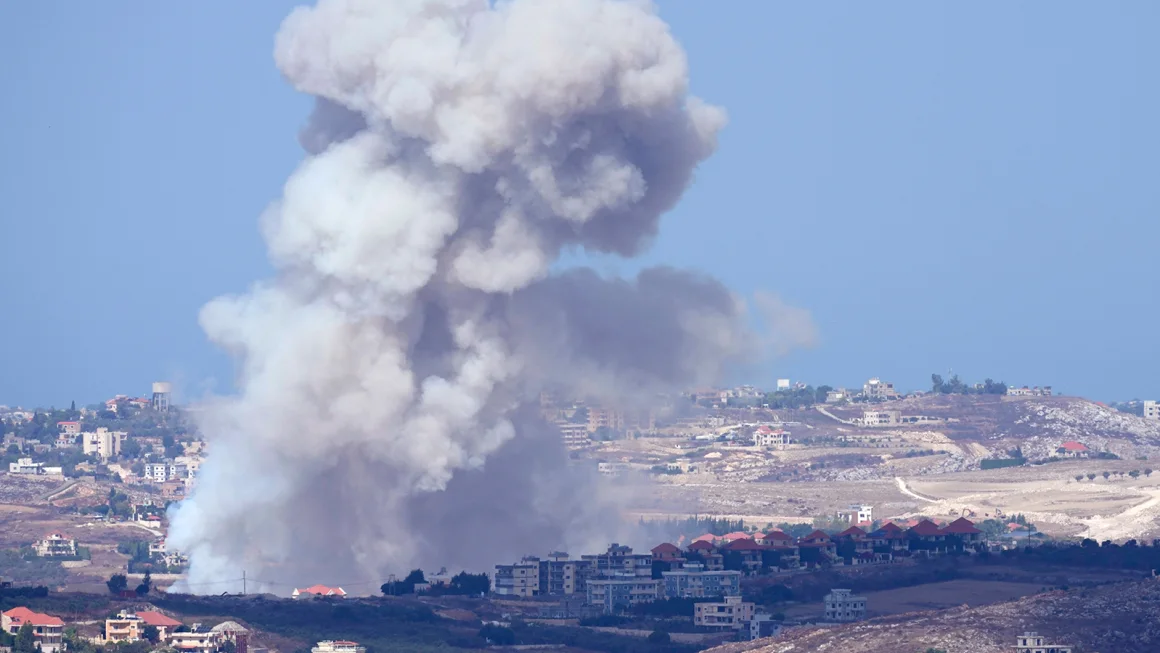Officials informed AWN that the US is concerned that the escalating fighting could trigger a larger conflict engulfing the entire Middle East, and that despite believing that Israel has considerably weakened Hezbollah in strikes over the past week, the US is still working tirelessly behind the scenes to try to persuade it not to escalate further and launch a ground incursion into Lebanon.
This is the closest the country has come to a regional war since Hamas’ onslaught on October 7, according to one official.
The next day, Hezbollah started attacking Israel with rockets and drones, ending years of relative calm along what had been Israel’s calmest border. Last week, Israel launched clandestine attacks that destroyed Hezbollah pagers and walkie-talkies, further intensifying the situation. Hundreds of people, including civilians and Hezbollah commanders, have been murdered in recent days as a result of Israel’s bombings on southern Lebanon and Beirut. In retaliation, the organization has launched rocket attacks on Israeli targets, including the Ramat David air base to the east of Haifa.
According to US authorities, the two groups do not want to go to war on a full scale. On Monday, however, a senior official from the State Department voiced doubt to reporters over Israel’s “escalate to de-escalate” approach.
As he spoke to reporters on Monday during the UN General Assembly, the State Department official made it clear that he couldn’t think of a time when a period of escalation or intensification resulted in a fundamental de-escalation and a significant stabilizing of the situation at least in recent memory.
The first official stated that the current main worry is the potential involvement of Iran, a significant supporter of Hezbollah. According to the person, Tehran has not yet taken any action, but they would if they fear losing control of their most formidable proxy group, Hezbollah.
Iranian foreign ministry spokesperson Nasser Kanaani issued a dire warning of “dangerous consequences” in the aftermath of Israel’s strikes on Monday.
Several senior leaders have been killed and Hezbollah’s command and control system has been badly affected, according to various officials, as Israel has already severely crippled the militant group in the past week, according to the first official.
The overall impact of Israel’s operations against Hezbollah have likely set them back 20 years, according to another official.
Since tensions in the Middle East have been steadily rising, the United States is sending additional troops to the region “out of an abundance of caution,” according to a Pentagon announcement made on Monday.
President Joe Biden’s speech to the General Assembly on Tuesday is more important than ever due to the crisis, but few are expecting him to defuse tensions, especially after US attempts to mediate a truce between Israel and Hamas have failed.
Allies frantically seeking “realistic suggestions”
At the United Nations summit in New York, allies are rushing to generate “concrete ideas” to calm the situation, which might destabilize the area. The senior State Department source emphasized the need of everyone taking Israeli preparations seriously, but did not specify whether the US anticipates a ground incursion in Lebanon by Israel in the event that those de-escalation measures are unsuccessful.
“Our efforts to get them to act with a degree of restraint cannot be determined by the pace or intensity of Israeli strikes on any given day,” the State Department source stressed.
Attacks targeting long-range cruise missiles and heavy rockets capable of striking deep within Israel were carried out by Israel on Monday against 1,600 targets belonging to Hezbollah, according to Rear Adm. Daniel Hagari, a spokesperson for the Israel Defense Forces (IDF). According to Hagari, the weapons were stashed “in civilian homes, at the center of the villages.”
The health ministry of Lebanon reported that at least 492 people, including 35 children and 58 women, were killed in the country as a result of the heavy aircraft bombing. The ministry reported that at least 1,645 individuals were hurt.
It was the bloodiest 24 hours of fighting in the nation since the war between Hezbollah and Israel in 2006, according to the single-day death toll.
The IDF reported that on Monday, Hezbollah launched over 200 rockets against Israel, with several of them being shot down over Haifa, the biggest city in northern Israel and the country’s third-largest metropolis.
An Israeli official stated that Israel has informed the US that its strikes do not intend to start a full-scale war. Instead, Israel is focusing on resettling 70,000 people who have been forced from their homes near the Lebanon border since Hezbollah started shooting rockets and drones on October 8. According to the Israeli source, the objective is to reach a diplomatic resolution by increasing tensions.
Although it would be a huge operation requiring the mobilization of many reserves and the transfer of Israeli units to the border with Lebanon, the IDF has not ruled out the prospect of a ground incursion.
“Have the troops gotten ready?” While speaking during a news conference on Monday, Hagari questioned rhetorically. “Indeed, the army is fully prepared, and we shall spare no effort in ensuring the safe return of every citizen to the northern border.”
After Hezbollah leader Hassan Nasrallah warned the militant group to stay away from cell phones in February, the operation that resulted in the explosion of the pagers and walkie-talkies, which was carried out by the Mossad and the Israel Defense Forces (IDF), reportedly rattled Hezbollah’s capacity to communicate.
However, despite taking a heavy hit, Hezbollah is still a greater threat to Israel than Hamas in Gaza. Their arsenal, which was strengthened with Iran’s assistance, was estimated at 150,000 rockets and missiles before the war.
After a “special situation” was declared nationwide, the Israeli cabinet was able to impose severe restrictions on civilian life. School closures and public gathering limitations are being enforced only in northern Israel and the vicinity of Gaza. The Israeli government is taking the matter very seriously; patients at northern Israeli hospitals were asked to relocate to safer places.
Officials are currently awaiting Iran’s response. Since Hamas leader Ismail Haniyeh was assassinated in Tehran in July, Tehran has not responded militarily.
Iran will continue to pursue vengeance, according to Iranian President Masoud Pezeshkian, who made the announcement on Monday.
Our guest was Ismail Haniyeh. Pezeshkian made the statement before the United Nations on the day he became president. “Israel invaded the region, attacked him, and then made him a martyr to further escalate the conflict and sow discord.”









